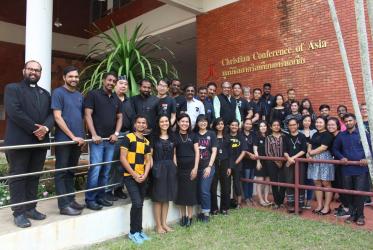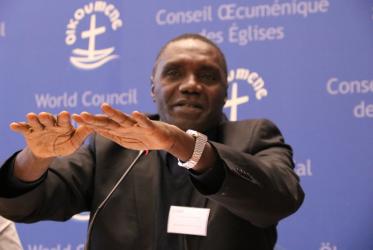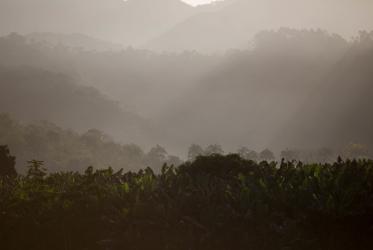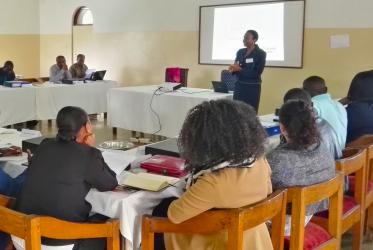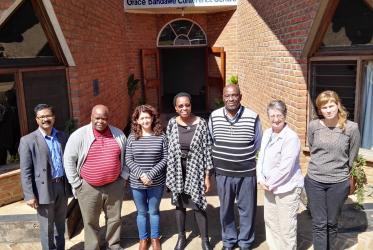Displaying 1 - 20 of 39
WCC condemns massacre of farmers in Philippines
12 April 2019
Agreement works toward food security in South Sudan
23 February 2019
Pan African Women of Faith issue fervent Call to Action
20 November 2018
WCC promotes Global Day of Prayer to End Famine
06 June 2018
WCC calls for Global Day of Prayer to End Famine
31 May 2018
Seven weeks of Lent highlight water justice in Latin America
12 February 2018
Protect the Amazon, urges WCC statement
22 November 2017
Forum strengthens ecumenical commitment to diakonia
12 October 2017
African youth takes stand at first ever WCC Eco-School
03 August 2017
G20 summit: call to pray for peace in Hamburg
07 July 2017
Applications open for WCC Eco-School
10 May 2017
